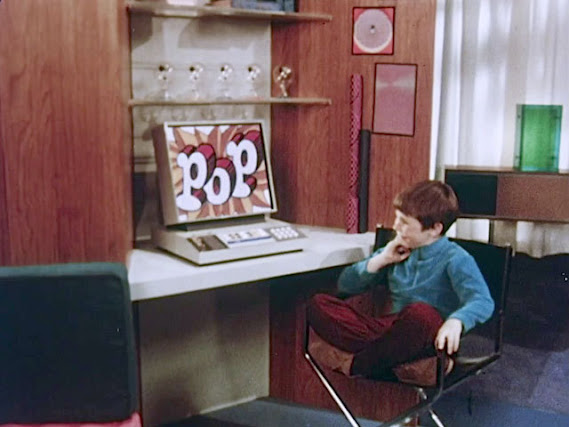At that age, I loved nothing more than computer games, and 1999 was a great year for them. The Longest Journey, Homeworld, Sid Meier's Alpha Centauri, System Shock 2, Planescape: Torment, and Quake III Arena all came out that year, as did FreeSpace 2, the first game I ever published any content for (I had messed around with Worldcraft, trying to make simple Half-Life maps, but never shared them online). It wasn't much, but it was my first step into the world of modding, the DIY side of the hobby, the social world of games—making them, sharing them, theorizing and bickering about them.
I don't think I started my LiveJournal until a year or two later, but 1999 was also the year LiveJournal was launched, so there's that too: a link to my one previous foray into blogging, which was also the first thing I did on the internet that brought me real, lasting human connections, including two friendships that endure to this day. One of them, it turned out, lived practically around the corner, so we quickly became real-life friends (and dated briefly, a footnote in her romantic history but a landmark in mine); the other lived halfway across the country, and yet we've managed to sustain an almost entirely epistolary relationship that's still going strong more than two decades later.
* * *
So what's "1999 A.D." about? The name is snappy and hopefully distinctive, and it's adjacent to 2000 AD, which is kinda fun, but it also, self-importantly, represents an ethos. The year 1999 was, for me, a time of tremendous optimism, when it seemed like my own creativity, and the world of games I loved, had limitless potential. 1999 stands for a broader societal optimism, too, both because it had been, decades earlier, the horizon on which we could see a sure-to-be-better future society, and because, in retrospect, it was, for all the anxiety about Y2K, one last moment of stability and prosperity (for many Americans, at least) before the 21st century's long slide into the suck began.
Computer games, for me, never really lived up to the promise they held in 1999, which is partly because I was a starry-eyed child then, and partly because the breakneck pace of technological advancement slowed enough, around the turn of the century, that our dreams of synthetic intelligence and infinite artificial worlds had to be deferred for at least a few decades, but also largely because games soon became a huge business and a lot of the creativity, ambition, and wildness were beaten out of them by the invisible hand of the market. 1999 was the crest of the wave, for me; later in high school, I devoted more time to the outdoors, to parties, and to getting high, and (a little) less to games. I got into World of Warcraft a few years later, which monopolized all of my gaming time and game-related social energy for a while. I got out of it, eventually. I got into Destiny 2, Hearthstone, Marvel Snap. I got out of those, too. I play PC games sometimes, still—I'll probably write about them at some point—but I don't love them the way I did. TTRPGs, though? I'm belatedly smitten.
I came to TTRPGs very late, especially for somebody who was such a huge nerd as a teenager; I started during the pandemic, playing long-distance D&D 5e on Zoom with one of my best friends, her partner, and some friends of theirs. To no one's surprise, least of all my own, I loved it. I started thinking about running a campaign, starting looking at other systems, started poking around online, knowing, this time, that there would be infinitely more content available than what had come in the box or the book.
I found Dan D's Throne of Salt sometime early last year. Saw this post and knew I had to run a science-fiction campaign of my own. Found Marcia B.'s Traverse Fantasy. Started listening to Astronomica. Found Skerples' Coins and Scrolls. Started accumulating PDFs: Stars Without Number supplements, Mothership modules, miscellaneous old Traveller stuff, all sorts of zines, Skerples' beautiful book. Started a SWN campaign with my 5e group (and two more friends, including my very best) when our two and half years of fantasy adventure drew to a close. Started filling notebooks and sketch pads with notes and doodles and maps and deck plans. Started itching to share my ideas.
* * *
Since my first forays into Half-Life mapping forums, I've pretty much always been active in some kind of online community somewhere: LiveJournal, punk music bulletin boards, WoW forums, Reddit (RIP r/chapotraphouse), Twitter. My activity has waxed and waned, but there's always something going on. In recent years, that something has tended to be unsatisfying, if not downright alienating. Even before Musk's coup at Twitter, social media wasn't feeling very social. Parasocial, sure. Antisocial, asocial. Howling into the void. The shrieking of the damned.
Around this time last year, I started reviewing every film I watched on Letterboxd—the only one of a number of resolutions I made at the start of 2023 (write a poem every day, write about every book I read, draft a novel) that stuck. I have a few followers; I get a few likes. It's cute, it's fun, but it's not much of a dialogue, not much of a community. Just scratches that old itch, makes me want something more substantial, more real. The grove of avant-garde TTRPG blogs I've started to wander through may be a tiny world, but it's a world of conversation, collaboration, creativity. A living world. It's exciting! It takes me all the way back to 1999.





No comments:
Post a Comment